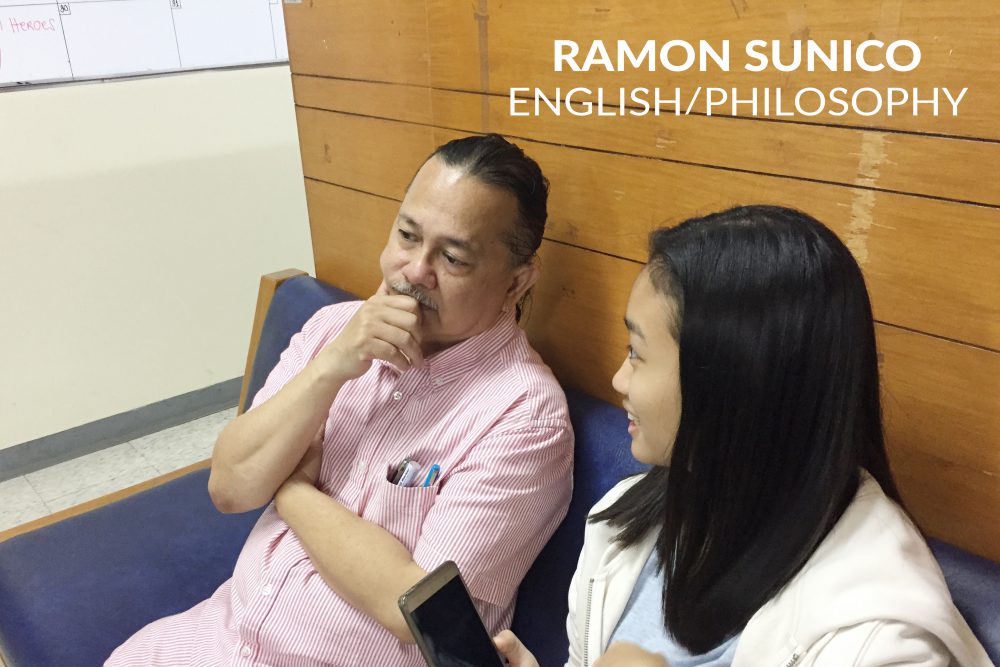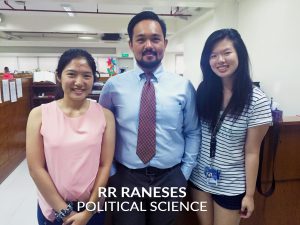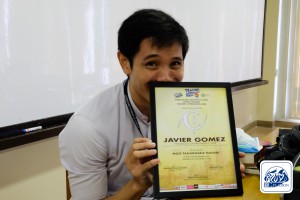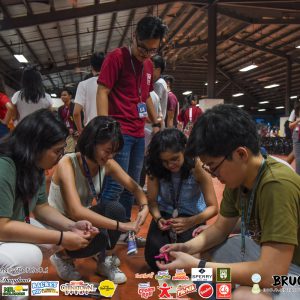Katreena Chang interviewed Mr. Ramón C. Sunico, a professor from both the English and Philosophy departments, for Teachers’ Appreciation Week 2016. Mr. Sunico became a teacher in Ateneo de Manila University immediately after his college graduation. Ten years later, he pursued a career in publishing. However, just last year, Mr. Sunico returned to the teaching profession after twenty years in the publishing industry.
Katreena Chang (KC): What inspired you to become a professor in the Ateneo?
Ramón Sunico (RS): It started as an act of gratitude. I was inspired by several excellent teachers I took in my last two years [of college]: Fr. Roque Ferriols, Mr. Rolando Tinio, Fr. Joseph Roche, Fr. Joe Galdon and many others. Also, the campus was hopping with many exciting events in the humanities. So, when Fr. Galdon invited me to teach at the English Department—I did not really have an idea what I would do after graduation [at that point]— I gladly accepted [it] as a way of repaying what my teachers had done for me.
KC: Why teach English and Philosophy?
RS: [Admittedly,] I was good at them! And I have fun with them.
KC: Do you have a preference between English and Philo?
RS: Deep inside, I don’t separate [them]. You know that from my class.
KC: What made you leave teaching?
RS: I had a friend who told me, “Teaching is hard. Burn-out. It’s very tiring. Once you [start] forgetting your students’ faces, it’s time to think about leaving.” It was starting to happen. I didn’t care who my students were. That time the average class size in Philo was forty-five, and it [weighed] four units. I reached a point [where I thought,] “Wait, here I am talking about life in Philo, and yet I’ve never been out of the university.” So [for] one, I was burning out. [Secondly], [I thought to myself] why was I talking about life when I’ve never tried it?
What did I want? I wanted to write, so what if I could control production? [I am referring to] the whole Marxist idea of how you have to control how things are made. I found that [in the publishing industry].
KC: What made you return to teaching after publishing?
RS: The company I came from was passed on to the next generation. I had different bosses. I tried working in the new office, but I didn’t like the system there. I always had a foot in [the Ateneo], so I thought, “Wouldn’t it be great if I could end my life in a circle?” The whole circle of life idea—it’s pretty cool.
KC: How does it feel to be back, sir?
RS: Better. The work is the same. I even think I have more tedious work now, but I like talking to students. In publishing, [I] don’t talk as much. And also, the campus is nice. It’s not as good as when we were here, but it’s nice, [especially] if you come from an urban set-up. Plus classes get suspended faster!
KC: What do you like most about teaching?
RS: That moment when a student’s eyes light up and you both see that you have shared a memory or an insight despite how different you both are.
KC: Through what and how you teach, what do you wish your students to become knowing what you’ve imparted to them?
RS: Better human beings excited to discover more about their world and their people.
KC: With your profession comes a lot of frustration. What drives you to keep teaching?
RS: My experiences, not just at work but in life, have shown me that frustration is part of being human. It’s not a [big deal]. I also see my work as planting seeds that will sprout flowers long after my students’ final exam.
KC: If there is one advice you can give your students, what would it be?
RS: Keep being interested in things outside your daily routine—and don’t cheat in class! It only hurts you [in the end].
KC: What is the most important thing you have learned from your students?
RS: There is always something to discover in people.
Follow the Teachers’ Appreciation Week page, to know more about professors in Ateneo de Manila!
Check out these professors in Teachers’ Appreciation Week:





Pingback: Sir Len Garces: A Student’s Kabarkada - Elements Magazine